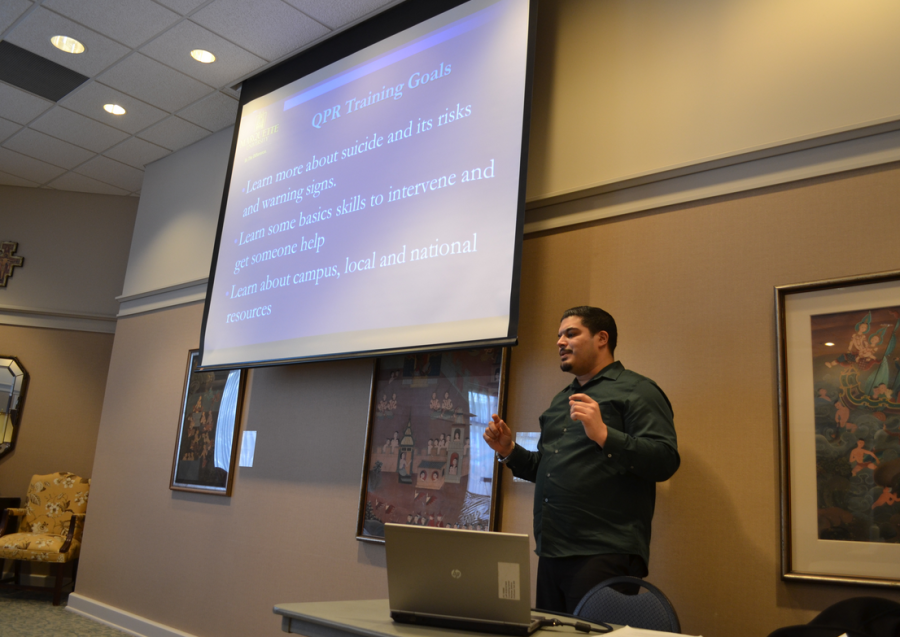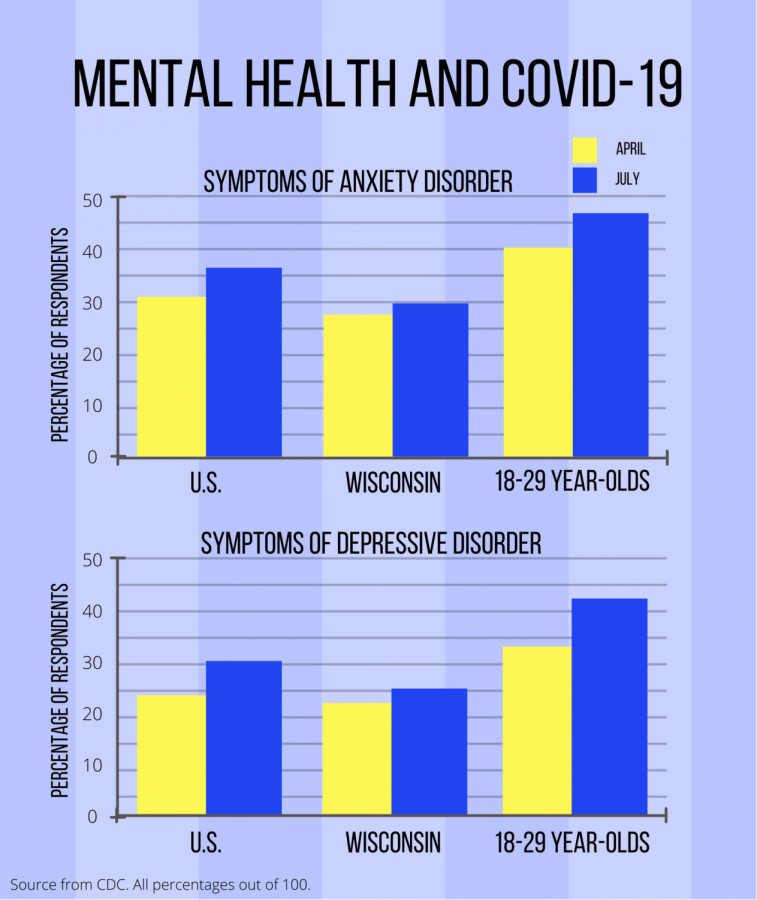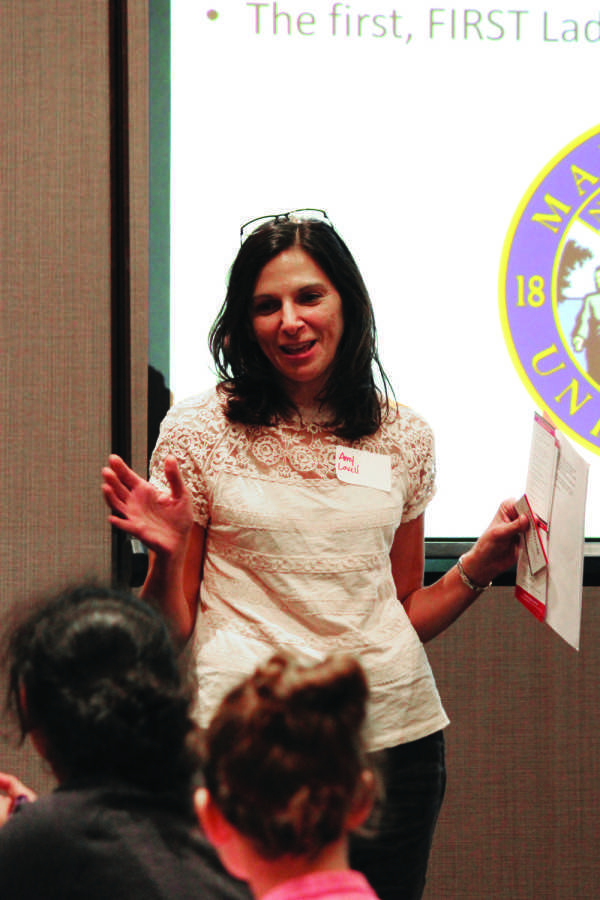By Kristina Lazzara
The Counseling Center hosted their Question, Persuade, Refer suicide prevention training session Wednesday, receiving two participants.
A similar suicide prevention training session held in April 2014 received one participant. However, 340 people, including teachers, counselors and resident advisors, underwent QPR training on campus in 2014. The training teaches them how to recognize, prevent and treat suicide-related situations.
Marquette has been using QPR training for almost eight years. Nick Jenkins, counselor and coordinator of mental health advocacy, hosted Wednesday’s session. He said he is truly passionate about mental health, which is now at an epidemic level.
Kirsten Guidero, a graduate student in the College of Arts & Sciences, was one of the training attendees.
“Being raised in a particularly religious community, there’s a stigma attached to (suicide), particularly in Christian communities,” Guidero said. “There is a mindset of suicide being this sort of unforgivable sin … people are afraid of admitting to wanting to end their life or that someone they know is struggling with that.”
Jenkins described a University of Texas-Austin study performed on 336 Marquette undergraduate students in 2006. Out of those students who had suicidal thoughts, 70 percent said they told someone about them.
Jenkins said 90 percent of people who committed suicide had an existing mental health issue; depression and bi-polar disorder as the leading two. Another factor is drug abuse.
There are “blinking red lights” that Jenkins said to look for: if someone says they feel hopeless, helpless, isolated, lonely, disconnected or like a burden to others. Those signs prompt the first stage of QPR: questioning.
Although people may be reluctant to ask directly, Jenkins said he strongly stands by plainly asking, “Are you having thoughts of suicide?” In his counseling experience, Jenkins said people are very honest in that situation and simply say yes if they are having suicidal thoughts.
The persuasion part of QPR involves talking a suicidal person down and convincing them to seek treatment from a counselor, police officer or hospital.
The training session ended with role-playing exercises where one person shows suicidal signs while the other tries to help them. The participants struggled to find the words to help their fictitious friend.






